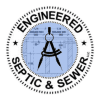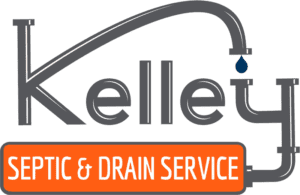- 1 (860) 767-0603
- Mon - Fri: 8:00 - 5:00
- 147 Dennison Road Essex, CT 06426
Is your septic tank overflowing?
Septic Tank Cleaning
Fast Response - No Call Out Fee - Affordable Rates
IS YOUR SEPTIC TANK OVERFLOWING? GET A QUOTE TODAY
Are you tired of dealing with persistent septic tank problems?
Do you find yourself constantly grappling with frustrating septic system issues? Look no further than Engineered Septic Sewer – your ultimate solution for all your septic tank troubles.
We understand the immense frustration and inconvenience that comes with septic system malfunctions. That’s why we’re here to alleviate your worries and provide exceptional septic tank cleaning services tailored to your specific needs. With our team of highly skilled and knowledgeable professionals, we’re fully equipped to handle any septic tank challenge that comes our way.
Say goodbye to the disruption caused by septic system problems. Reach out to Engineered Septic Sewer today and let us put an end to your septic tank troubles. Whether you require routine maintenance, efficient repairs, or immediate emergency services, rest assured, we’ve got you covered.
Identifying the Reasons for Septic Tank Problems & Failure
Neglecting regular septic tank maintenance, including crucial tasks such as pumping and cleaning, can result in the buildup of sludge and scum
Excessive water usage, such as running multiple appliances simultaneously or using large amounts of water within a short period, can overload the septic system.
Flushing non-biodegradable items such as wipes, sanitary products, or chemicals down the toilet can cause blockages and significant damage to the septic tank.
Like any other system, septic tanks have a limited lifespan. Aging components, deteriorating seals, and structural issues contribute to septic tank problems.









Uncover the Hidden Power of Regular Septic Tank Cleaning












Your septic tank silently works day and night to efficiently process and treat household waste, acting as the unsung hero of your wastewater disposal system. However, over time, sludge, scum, and solid waste can accumulate, leading to clogs, odors, and even system failure.
Regular septic tank cleaning is vital to maintain a healthy and properly functioning system. By removing built-up debris through professional cleaning services, you prevent backups, leaks, and costly repairs while prolonging the lifespan of your septic system, ensuring optimal performance.
Engineered Septic Sewer's Superior Cleaning Process
- At Engineered Septic Sewer, we employ a comprehensive and meticulous cleaning process that leaves no stone unturned. Our highly skilled technicians utilize cutting-edge equipment and techniques to deliver exceptional results.
- We begin by conducting a thorough assessment of your septic system's condition, identifying any potential issues or areas of concern. This helps us tailor our cleaning approach to meet your specific needs.
- Using advanced pumping techniques, our team removes accumulated sludge, scum, and solid waste from your septic tank. We ensure that every nook and cranny of your tank is thoroughly cleaned, promoting optimal functionality.
- Following the cleaning process, we conduct a rigorous inspection to identify any potential repairs or maintenance requirements. We provide you with detailed feedback and recommendations to keep your septic system in peak condition.
The Benefits of Engineered Septic Sewer's Cleaning Service
Enhanced System Performance
Odor Elimination
Cost Savings
Peace of Mind
Enhanced System Performance
By improving the system’s performance, you can enjoy a hassle-free experience and peace of mind knowing that your septic tank is operating at its best.
Odor Elimination
Lingering odors from a poorly maintained septic tank can be a constant source of discomfort. Our professional cleaning services eliminate unpleasant odors, leaving your property fresh and odor-free. Say goodbye to unpleasant smells and enjoy a clean and refreshing environment.
Cost Savings
Regular septic tank cleaning is a smart investment that can save you money in the long run. By preventing costly repairs and system failures, you avoid expensive emergency situations. Our cleaning services help you avoid unnecessary expenses and ensure that your septic system remains in optimal condition.
Peace of Mind
With Engineered Septic Sewer’s reliable and efficient cleaning service, you can have peace of mind knowing that your septic system is in expert hands. Our dedicated team handles the dirty work, allowing you to focus on more important aspects of your life. Trust us to maintain your septic system and provide you with a worry-free experience












Frequently Asked Questions about Septic Systems
A septic system is a small onsite sewage treatment and disposal system buried in the ground in which waste matter is decomposed through bacterial action.
The typical septic treatment system includes a septic tank, which digests organic matter and separates floatable matter (e.g., oils and grease) and settleable solids from the wastewater. Soil-based systems discharge the liquid (effluent) from the septic tank into a series of perforated pipes buried in a leach field, leaching chambers, or other special units designed to slowly release the effluent into the soil or surface water. Alternative systems use pumps or gravity to help septic tank effluent trickle through sand, organic matter (e.g., peat, sawdust), constructed wetlands, or other media to remove or neutralize pollutants like disease-causing pathogens, nitrogen, phosphorus, and other contaminants. Some alternative systems are designed to evaporate wastewater or disinfect it before it is discharged to the soil or surface waters.
The most common reasons for septic system failure are improper use and lack of periodic pumping of the septic tank. A licensed liquid waste hauler will remove the solids and other materials or sludge layer that forms at the bottom of your tank to prevent any solids from clogging your disposal system and causing premature system failure. Proper system maintenance is the responsibility of the property owner. By performing a few simple maintenance procedures and having a proper system pump-out, you can save on costly repairs to your septic system.
Rarely will septic systems give warning they are about to fail. However, the following symptoms can indicate the leaching system is becoming clogged: a) Sewage odor near the septic tank or leaching field, b) slowly running drains and toilets, and c) sewage on the ground over the leaching field.
Regular inspection and periodic septic tank pump-outs by a licensed liquid waste hauler are essential in the long-term care and maintenance of your septic system.
Frequency of pumping depends on the capacity of the tank and the number of people in the house. If your house has a standard 1,250-gallon tank and you have 3 to 4 people, the tank must be pumped every 3 years. Note: if you use a garbage disposal, it’s like adding another person to the equation and accelerates the buildup of sludge. Septic tank pump-outs for residential use are recommended at least once every three years to prevent costly repairs to your septic systems.
Pumping involves vacuuming the wastewater sludge and scum out of the tank chambers with a large tank truck equipped with a high capacity vacuum pump system. The waste is then transported to a designated municipal wastewater treatment facility for processing.
The best way to guarantee a proper system pump-out is to watch how your septic tank is being pumped. The pumping of contents from each compartment of your septic tank should only occur through the access lid of your septic tank.
Septic tanks are constructed as single or double compartment tanks made of concrete, metal or plastic. Each compartment has a lid at the top to provide access for periodic pump-outs. Each lid typically is covered by 6 inches to 3 feet of soil material. The soil material covering each access lid must be removed by the owner before a septic tank pump-out can occur. To prevent injury, the access lid(s) should only be removed by a licensed liquid waste hauler. A septic tank is a confined space and contains gases that can be deadly. Never climb into or enter a septic tank.
The most common reasons for septic system failure are improper use and lack of periodic pumping of the septic tank. A licensed liquid waste hauler will remove the solids and other materials or sludge layer that forms at the bottom of your tank to prevent any solids from clogging your disposal system and causing premature system failure. Proper system maintenance is the responsibility of the property owner. By performing a few simple maintenance procedures and having a proper system pump-out, you can save on costly repairs to your septic system.
Don’t use garbage disposals or pour cooking grease, oils or other materials like paper towels, sanitary hygiene products, condoms, cigarettes or plastics into your septic system. These materials can overload your tank and end up clogging your disposal fields. Be careful with the amount of non-biodegradable chemicals used in your septic system like detergents, bleach, fabric softeners, paints, paint thinners, motor oil, degreasers and household hazardous wastes. A septic system is a natural living environment, so you want to limit chemical use as much as possible. Practice water conservation by washing full loads of clothes, fixing leaky faucets and running toilets, and installing low-flow plumbing fixtures. Don’t drain swimming pools or hot tubs into a septic system. The more water you pump through your system, the more stress you put on it. Septic tank additives have not been proven to be effective and are not recommended for use in septic systems. When landscaping, make sure plants and trees are compatible with your septic system. Roots can damage pipes and clog the drainfield. Grass is the best type of cover. These simple practices allow your system to operate at its best and can greatly extend the life of your septic system.
Have your installer make a drawing (to scale) that shows the location of your tank and drainfield in relation to your home. This will help guide your service provider should any repairs be necessary. You’ll also need a diagram of your septic system when you are considering any home renovations, landscaping projects, or new parking places and driveways.
In a word, no. We take great effort to only dig where it’s necessary and put down plywood to keep your yard clean and free of machine ruts and tracks.
If your question isn’t asked and answered here, please contact us. Who knows – maybe your question will be added to our FAQ!
How Can We Help?
Request a FREE QUOTE Today
Let us take care of all your Septic sewer worries. Sit back and relax while our team handles the rest. Contact Engineered Septic Sewer today and let us restore your septic tank to its optimal functionality.

